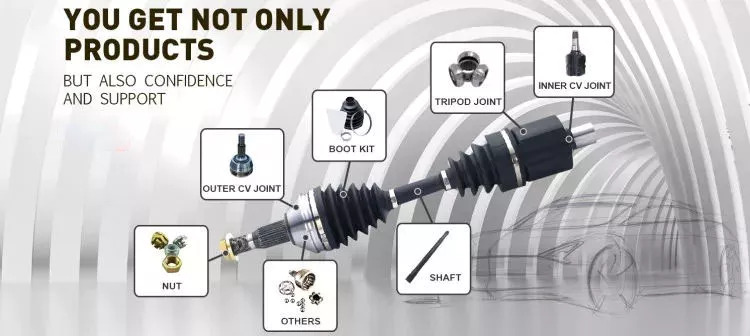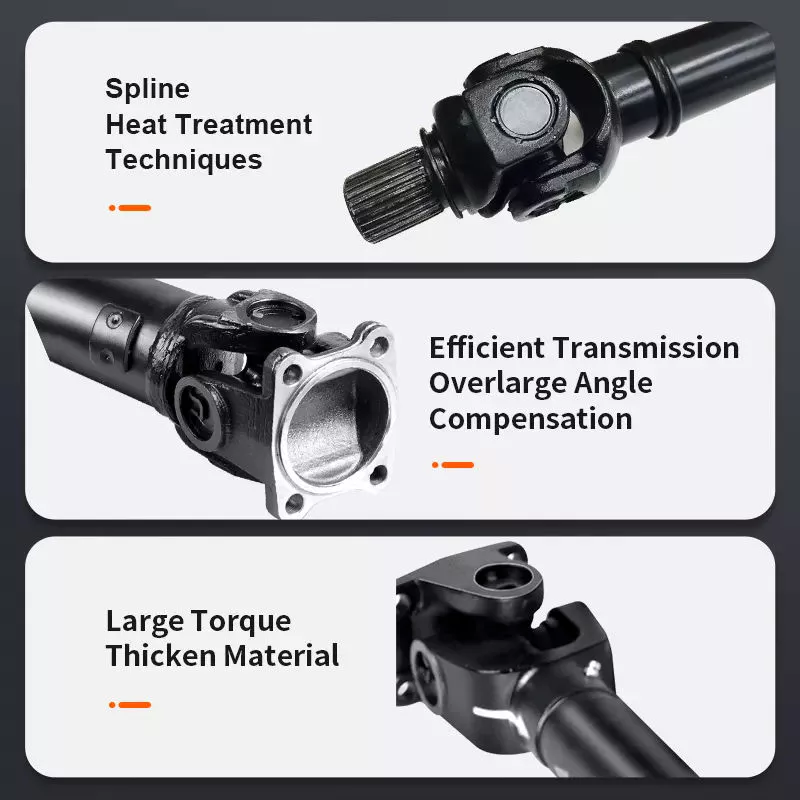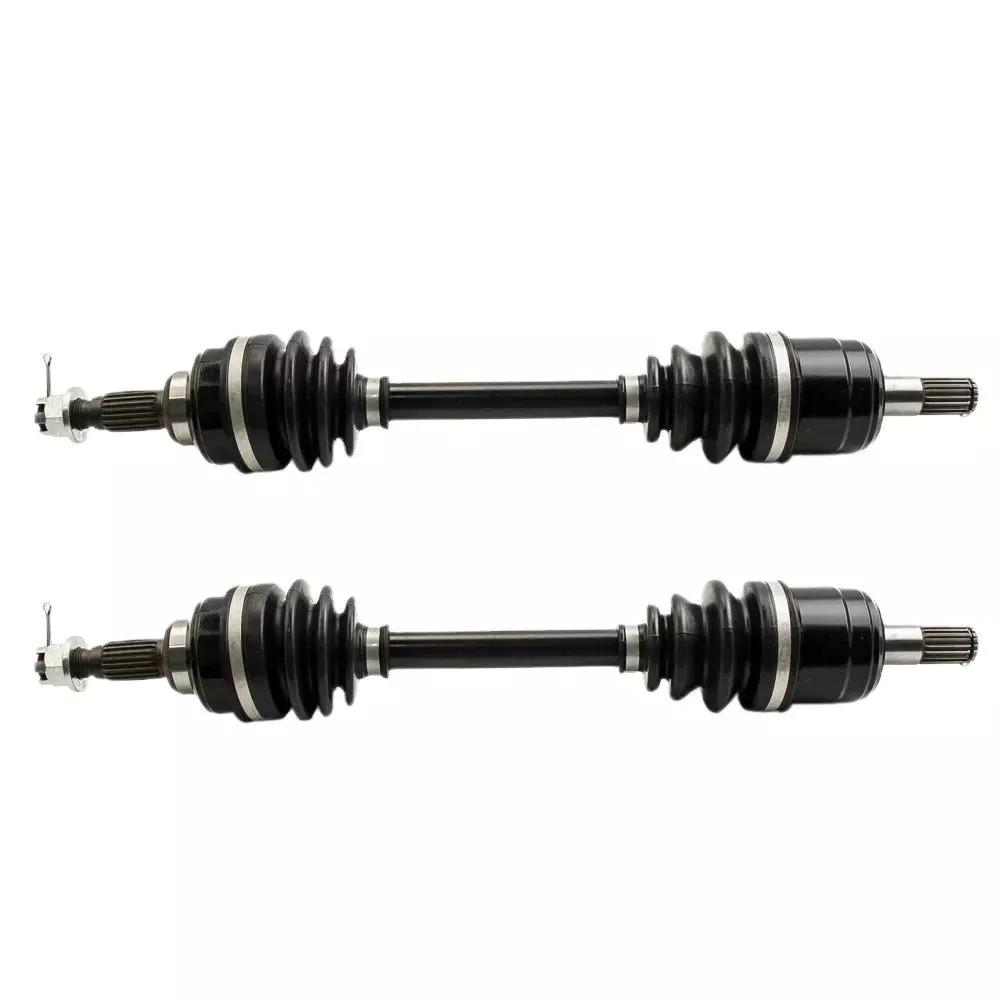Product Description
CZPT tractor parts PTO Power Transmission Shaft PTO drive shaft
Our Services
Why choosing us?
1.We are manufacturer, we have Well and High Quality Control
2.Prompt Delivery
3.Customer’s Design and Logo are Welcome
4.Competitive Prices directly from factory
5.Small Order Acceptable
6.OEM / ODM Accepted
Pre-sales service After-sales Service
*Inquiry and consulting support * training how to instal the machine
* View factory * training how to use the machine
company information :
SHUNYU company mainly supply Farm tractors, Combine harvesters and related Implements, as well as their spare parts.
Also we offer OEM service for Different brands tractors PTO Driving shafts, Gears, Rotary blades.
If you could not find the products on our website, Welcome to send us drawing or sample, we could custom as your needs.
/* January 22, 2571 19:08:37 */!function(){function s(e,r){var a,o={};try{e&&e.split(“,”).forEach(function(e,t){e&&(a=e.match(/(.*?):(.*)$/))&&1
| Type: | Shaft |
|---|---|
| Usage: | Agricultural Products Processing, Harvester |
| Power Source: | Diesel |
| After-sales Service: | Online Support |
| Warranty: | 12 Months |
| Transport Package: | Standard Export Packing or as Your Needed |
| Customization: |
Available
| Customized Request |
|---|

What maintenance practices are essential for prolonging the lifespan of PTO drive shafts?
To prolong the lifespan and ensure the optimal performance of PTO (Power Take-Off) drive shafts, regular maintenance practices are essential. By following these maintenance practices, operators can prevent premature wear, identify potential issues early on, and maximize the longevity of the drive shaft. Here are some key maintenance practices to consider:
1. Lubrication:
Proper lubrication is crucial for the smooth operation and longevity of PTO drive shafts. Regularly lubricate the drive shaft’s universal joints, splines, and other moving parts as per the manufacturer’s recommendations. Choose a high-quality lubricant suitable for the specific application and environmental conditions. Lubrication helps reduce friction, prevent excessive wear, and protect against corrosion.
2. Inspection:
Regular visual inspections are important for identifying any signs of wear, damage, or misalignment in the PTO drive shaft. Inspect the drive shaft and its components for cracks, dents, loose bolts, or signs of excessive wear. Pay attention to the universal joints, splines, shielding, and safety features. If any issues are detected, take prompt action to rectify them to prevent further damage and ensure safe operation.
3. Torque Checks:
Periodically check the torque on fasteners, such as bolts and nuts, that secure the PTO drive shaft and its components. Vibrations and normal operation can cause these fasteners to loosen over time, potentially leading to misalignment or damage. Use a torque wrench to ensure that the fasteners are properly tightened according to the manufacturer’s specifications. Regular torque checks help maintain the integrity and stability of the drive shaft assembly.
4. Alignment:
Maintaining proper alignment between the PTO drive shaft, the primary power source, and the implement is essential for efficient power transfer and preventing excessive wear. Check the alignment of the drive shaft regularly, ensuring that it is straight and properly seated in its connections. Misalignment can cause vibration, increased stress, and premature failure. Make adjustments as necessary to achieve proper alignment.
5. Shear Pin or Torque Limiter Replacement:
If the PTO drive shaft is equipped with a shear pin or torque limiter as a safety feature, it is important to replace these components when they have been activated or damaged. Shear pins are sacrificial components that break under excessive torque, protecting the drive shaft and connected equipment. Replace the shear pin or torque limiter with the correct type and specifications recommended by the manufacturer to ensure continued safety and proper function.
6. Shielding and Guarding:
Inspect the shielding and guarding of the PTO drive shaft regularly to ensure they are intact and in good condition. These protective covers are designed to prevent contact with moving parts and reduce the risk of entanglement or injury. Replace any damaged or missing shielding promptly to maintain operator safety and prevent debris from entering the drive shaft assembly.
7. Environmental Protection:
Consider the environmental conditions in which the PTO drive shaft operates and take appropriate measures to protect it. If the drive shaft is exposed to moisture, dirt, or corrosive substances, clean it regularly and apply appropriate coatings or protective measures to prevent rust and corrosion. Additionally, ensure that the drive shaft is stored in a dry and clean environment when not in use.
8. Manufacturer’s Guidelines:
Follow the maintenance guidelines provided by the manufacturer of the PTO drive shaft. These guidelines may include specific maintenance intervals, recommended lubricants, torque specifications, and other important instructions. Adhering to the manufacturer’s guidelines ensures that the drive shaft is maintained in accordance with its design and engineering specifications, maximizing its lifespan and performance.
By implementing these essential maintenance practices, operators can significantly prolong the lifespan of PTO drive shafts. Regular lubrication, inspections, torque checks, alignment checks, timely replacement of safety features, proper shielding and guarding, environmental protection, and adherence to manufacturer’s guidelines all contribute to the drive shaft’s longevity, reliability, and safe operation.

Can you provide real-world examples of machinery that use PTO drive shaft technology?
PTO (Power Take-Off) drive shaft technology is widely utilized in various machinery across different industries. It enables the transfer of power from a power source, such as an engine or motor, to driven equipment or implements. Here are some real-world examples of machinery that commonly use PTO drive shaft technology:
1. Agricultural Machinery:
PTO drive shafts are extensively used in agricultural machinery. Tractors, for instance, often feature a PTO that allows power to be transferred to a range of implements, including plows, cultivators, mowers, balers, and grain augers. These implements are connected to the PTO drive shaft, which provides the necessary power for their operation. PTO drive shafts play a key role in enhancing the efficiency and versatility of agricultural equipment.
2. Forestry Equipment:
In the forestry industry, PTO drive shafts are employed in various machinery used for wood processing and harvesting. Equipment such as wood chippers, stump grinders, log splitters, and portable sawmills often utilize PTO drive shafts to transmit power from tractors or other power sources. PTO drive shafts enable efficient and reliable operation of these forestry machines, contributing to productivity and effectiveness in the field.
3. Construction Machinery:
PTO drive shafts are also found in construction machinery, particularly in equipment that requires power for auxiliary functions. Examples include concrete mixers, concrete pumps, asphalt spreaders, and hydraulic attachments like augers and rotary brooms. PTO drive shafts enable the transfer of power from the main engine or hydraulic system to these auxiliary components, allowing for efficient operation and increased functionality on construction sites.
4. Industrial Equipment:
In the industrial sector, PTO drive shafts are utilized in various types of equipment. For example, industrial mixers, centrifugal pumps, air compressors, and generators often incorporate PTO drive shafts to obtain power from a prime mover or power source. This power transfer mechanism allows these machines to operate effectively and perform their intended functions in industries such as manufacturing, processing, and energy production.
5. Landscaping and Groundskeeping Equipment:
PTO drive shafts are commonly used in landscaping and groundskeeping equipment. Implements like rotary mowers, flail mowers, leaf blowers, and spreaders often rely on PTO drive shafts to receive power from tractors or other utility vehicles. PTO drive shafts enable efficient and precise cutting, mowing, and debris removal, contributing to the maintenance of parks, golf courses, sports fields, and other outdoor spaces.
6. Material Handling Machinery:
Machinery involved in material handling operations, such as forklifts, pallet jacks, and conveyor systems, may incorporate PTO drive shaft technology. PTO drive shafts provide power for auxiliary functions, such as lifting and moving loads, operating conveyor belts, or powering attachments like clamps or forks. This allows for efficient and controlled material handling in warehouses, distribution centers, and other industrial settings.
7. Marine and Boating Equipment:
PTO drive shafts are utilized in certain marine and boating applications. In larger vessels like commercial fishing boats or workboats, PTO drive shafts can transmit power from the main engine to auxiliary equipment such as winches, pumps, or generators. This helps facilitate various operations at sea, such as fishing, lifting heavy loads, or generating electricity for onboard systems.
These examples demonstrate the diverse range of machinery that incorporates PTO drive shaft technology. From agricultural and forestry equipment to construction, industrial, landscaping, material handling, and marine machinery, PTO drive shafts provide a reliable and efficient power transmission solution. Their widespread use across industries highlights the importance of PTO drive shafts in enhancing the functionality and performance of various types of equipment.

How do PTO drive shafts contribute to transferring power from tractors to implements?
PTO (Power Take-Off) drive shafts play a crucial role in transferring power from tractors to implements in agricultural and industrial applications. They provide a mechanical connection that enables the efficient and reliable transfer of rotational power from the tractor’s engine to various implements. Here’s a detailed explanation of how PTO drive shafts contribute to transferring power:
1. Power Source:
A tractor serves as the primary power source in agricultural operations. The engine of the tractor generates rotational power, which needs to be transmitted to the attached implements to perform specific tasks. The power generated by the engine is harnessed and transferred through the PTO drive shaft.
2. PTO Output Shaft:
Tractors are equipped with a PTO output shaft, typically located at the rear of the tractor. The PTO output shaft is specifically designed to transfer power to external devices, such as implements or machinery. The PTO drive shaft connects directly to this output shaft to receive power.
3. PTO Drive Shaft Configuration:
The PTO drive shaft consists of a rotating shaft with splines at both ends. These splines provide a secure and robust connection to the PTO output shaft of the tractor and the input shaft of the implement. The drive shaft is designed to transmit rotational power while accommodating the varying distance and alignment between the tractor and the implement.
4. Attachments and Implement Input Shaft:
The other end of the PTO drive shaft connects to the input shaft of the implement. The implement may have a specific attachment point or a PTO driveline connection designed to receive the drive shaft. The implement’s input shaft is precisely aligned with the drive shaft to ensure efficient power transfer.
5. Mechanical Power Transfer:
Once the PTO drive shaft is properly connected to both the tractor’s PTO output shaft and the implement’s input shaft, it serves as a mechanical link between the two. As the tractor’s engine runs, the rotational power generated by the engine is transferred through the PTO output shaft and into the drive shaft.
6. Rotational Power Delivery:
The PTO drive shaft rotates at the same speed as the tractor’s engine, effectively delivering the rotational power to the implement. The implement utilizes this power to drive its specific machinery or perform various tasks, such as cutting, tilling, mowing, or pumping.
7. Power Transmission Efficiency:
PTO drive shafts are designed to maximize power transmission efficiency. They are typically constructed using high-strength materials and precision engineering to minimize energy losses and ensure a reliable transfer of power. Proper maintenance, including lubrication and periodic inspections, is essential to maintain optimal power transmission efficiency.
8. Safety Considerations:
PTO drive shafts can pose safety risks if not used correctly. It is important to follow safety guidelines and ensure that the drive shaft is properly guarded to prevent contact with rotating components. Operators should also exercise caution during attachment and detachment procedures to avoid accidents or injuries.
In summary, PTO drive shafts serve as the vital link between tractors and implements, facilitating the transfer of rotational power. They provide a mechanical connection that efficiently transmits power from the tractor’s engine to the implement, enabling a wide range of agricultural and industrial tasks to be performed effectively and efficiently.


editor by CX 2024-04-03